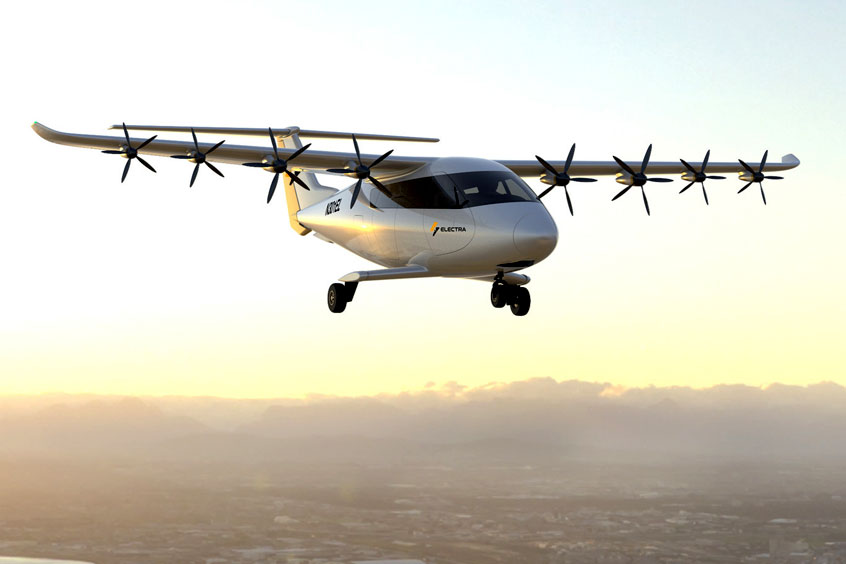ACE 2026 - The home of global charter.
 The bimonthly news publication for aviation professionals.
The bimonthly news publication for aviation professionals.



Electra plans to begin flight testing a full-scale hybrid eSTOL tech demonstrator aircraft in 2022. It will carry two people, take off and land in distances under 150 feet and use a 150-kW hybrid-electric turbogenerator to power eight electric motors and charge a custom battery system during flight. This demonstrator will be used to provide data and operational experience to support the certification.
Based in Falls Church, Virginia, Electra is a next-generation aerospace company devoted to sustainable urban and regional mobility. It has announced it has hired expert Randy Griffith as its director of certification and has begun working with the U.S. Federal Aviation Administration (FAA) Center for Emerging Concepts and Innovation (CECI) and the Atlanta Aircraft Certification Office (ACO) to define the certification path for its eSTOL aircraft.
John Langford, Electra CEO says "Randy is an industry veteran who has led the certification of the Eclipse Jet, HondaJet, Mooney M10, Aerion SST and Zunum ZA10. Having taken several aircraft from concept through certification, he knows what it really takes to get the job done, and we are excited to have him on our team."
The first commercial product for Electra is planned for an FAA type certification multi-engine, Level 3, low speed (maximum operating speed less than 250 kts) aircraft under 14 CFR Part 23 in 2026 and is designed to carry up to seven passengers and a pilot as far as 500 miles. It will serve urban and regional air mobility markets, sustainability-focused airline operations, "middle mile" cargo logistics and air ambulance services.
Electra has been accepted into the FAA Center for Emerging Concepts and Innovations (CECI) early engagement programme to work together with CECI and the Aircraft Certification Office to evaluate these special considerations, define the project specific certification plan and develop the compliance checklist among other key documents.
"The certification of any aircraft (eVTOL, eSTOL, or CTOL) must be treated with great respect to exceed expectations of the public's trust in the aircraft OEM and the regulator. The key to a cost and time efficient certification is the early engagement of stakeholders to identify and mitigate risks while changes to improve safety can be efficiently made," says JP Stewart, Electra's programme manager. "We've started this engagement early in the design and look forward to working with the FAA and other stakeholders to develop the safest aircraft in this class."
All aircraft developments, even conventional piston designs, have unique design features or approaches that require special considerations (such as special conditions, equivalencies, exemptions and unique means of compliance). Electra says it has chosen its aircraft configuration and technologies to minimise these special considerations, which increase development complexity, costs and time.